Global Stories
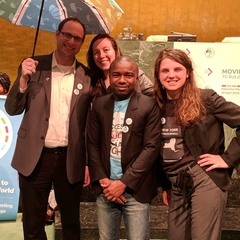
T1International at the UN UHC Multi-stakeholder Hearing
17 May 2019, 12:31 p.m. in Global Stories, News & Statements by Lauren Lehrer & Karlynn Holland
In particular, we call on pharmaceutical companies to show up with true solutions, not the same empty rhetoric. We are dying. There are solutions. It is times to protect rights of health and treatment for people living with diabetes and all those in desperate need of essential medicine – a vital part of health for all. Read more
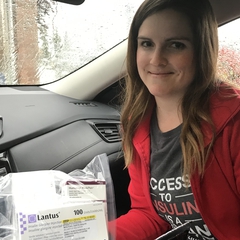
Traveling to Canada for Cheaper Insulin
3 May 2019, 12:33 p.m. in #insulin4all USA, Global Stories by Karyn Wofford
I believe if enough people use their voice and demand change, one day I’ll be able to make a simple 10 minute drive to get my medication rather than a two day journey. Until then, I’ll keep digging for loopholes while fighting for long-term solutions, so that I can live my life as normal as possible. Everyone with type 1 diabetes should be able to focus on caring for their condition without extra unnecessary hoops to jump through. Read more
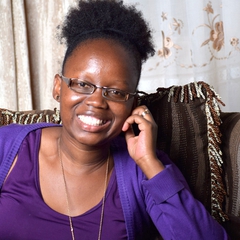
Case Studies from Kenya
25 Apr 2019, 12:23 p.m. in Global Stories by T1International
I was diagnosed with type 1 diabetes in my early 20's, just when I was preparing to join college. Things turned upside down at that time because my parents could not afford to take me to college and at the same time pay for my insulin and all the tests required. I never went to college because of the costs associated with my diabetes. Read more
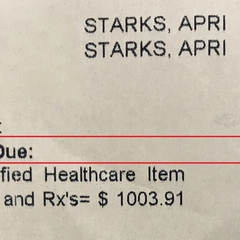
New Year, New Deductible: Paying $1,000 each Month to Stay Alive
15 Mar 2019, 12:41 p.m. in #insulin4all USA, Global Stories by April Starks
I’m thrilled to see the recent buzz in the media concerning the high insulin costs many diabetics face daily in the USA. I’ve required insulin multiple times a day for 33+ years and I have a high deductible insurance policy which means medical costs, including prescriptions, aren't covered until the deductible is met. I paid $1,003.91 for insulin this month. That cost is what I paid with insurance and a $150 discount card. I pay high amounts during the first few months of every year until I meet my deductible. Read more
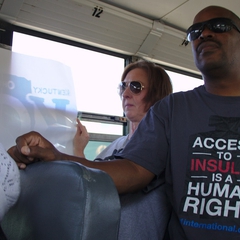
T1International Year in Review: 2018
17 Dec 2018, 9:59 a.m. in Global Stories, News & Statements by T1International
This is truly only a highlight of our proudest achievements this year, but we have worked in countless other ways to support advocacy and further our mission. We’ve held other meetings, created new resources, covered issues in new countries, been featured as Price fighting Heroes, and we are a partner in the exciting OPEN Project, adding a global access and affordability perspective to an exploration of DIY technology. Read more
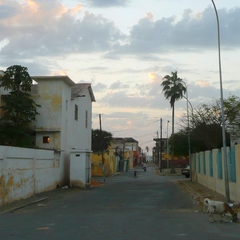
Necessary Baggage: Lessons Learned in Senegal
6 Dec 2018, 10:29 a.m. in Global Stories by Becca Golden
It took experiencing a situation where the healthcare available felt scarily inadequate to truly internalize the medical privilege I have enjoyed throughout my life. My time in Senegal put the hardship of diabetes in perspective and helped me truly appreciate the resources that I have. Read more
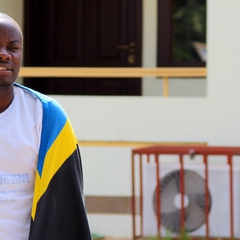
Lack of Knowledge about Diabetes is Killing us
24 Nov 2018, 3:11 p.m. in Global Stories by Johnpeter Mwolo
For me, I hid myself for more than 10 years. I would have rather died than have someone find out I was diabetic. I did that because of misinterpretations from many people due to lack of knowledge about it. I had to tell my mom that no one should know that I’m diabetic unless it was necessary. As a result, those few who knew came up with a lot of their own interpretations about it. I was told many times that traditional herbs would cure me completely. Obviously, none of those worked and I am still diabetic today. Read more
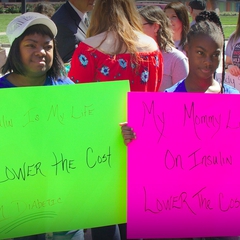
Raising My Voice at Eli Lilly
9 Oct 2018, 2:57 p.m. in #insulin4all USA, Global Stories by Krystal Davis
The whole experience of the demonstration showed me that I am not alone. My voice was heard. My daughter said throughout the day that she met great people. She also networked and built relationships with others who are supporting family members or close friends with diabetes, just as she supports me, and it showed her that we are all going through this battle together. We all have voices that matter. Read more
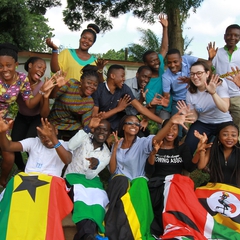
Pamoja Advocacy Training in Ghana
20 Sep 2018, 2:56 p.m. in Global Stories, News & Statements by Pamojan Advocates
‘Pamoja’ is a Swahili word that means together. This was the underpinning spirit of the advocacy training. Pamoja advocates worked together on education-focused advocacy goals throughout the training. Goals are country-specific, but similar enough that sharing and support can happen between all the advocates from each of the five countries. Read more
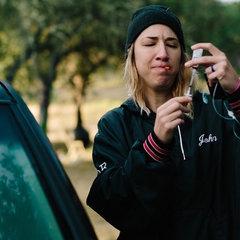
Crossing Borders to Afford Insulin
16 Aug 2018, 3:18 p.m. in #insulin4all USA, Global Stories by Robin Cressman
I certainly learned a lot buying insulin in Tijuana, but the most powerful lesson by far was that I have options, and so do other diabetics. They are not always easy, and they may take some creativity, resourcefulness, and gas money, but this is at least one more anecdotal report of an American going elsewhere for their insulin. Read more